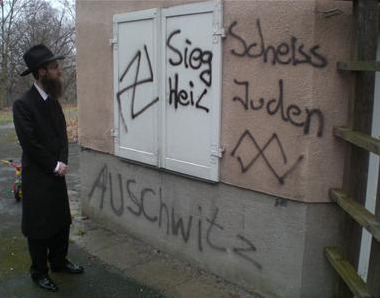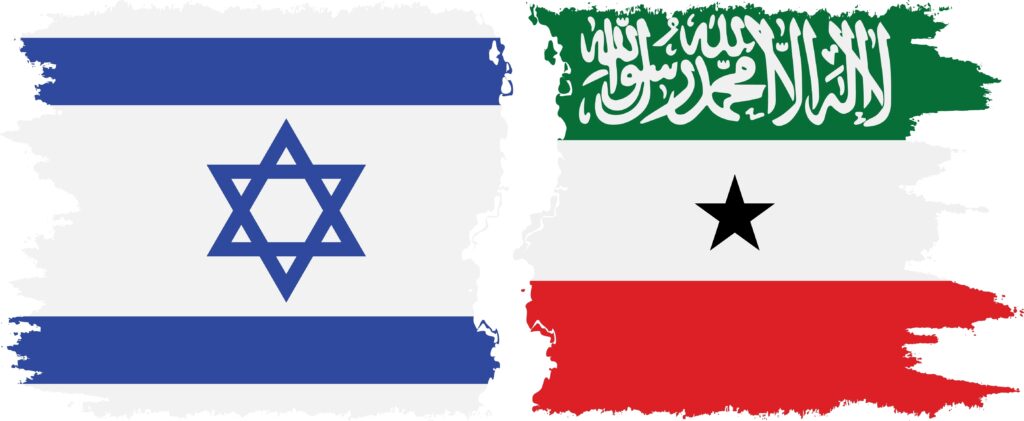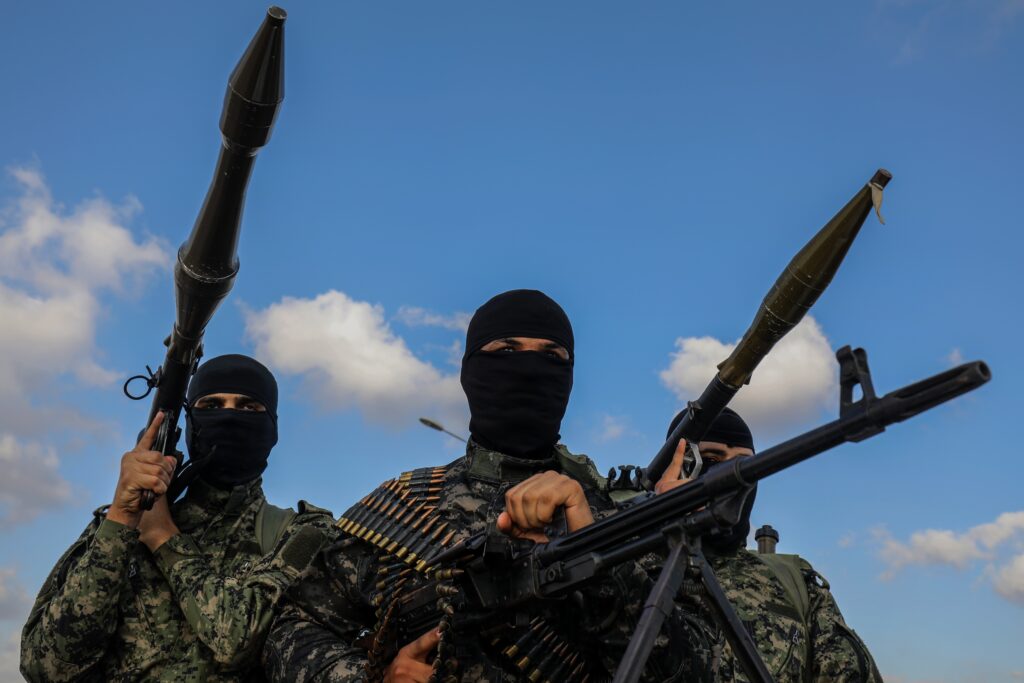UPDATES
Europe and the New Antisemitism/ Lebanon heading for a Civil War?
November 2, 2012

Update from AIJAC
November 2, 2012
Number 11/12 #01
This Update contains two pieces from leading intellectuals dealing with the rise of “new” forms of antisemitism – forms where anti-Zionism is mixed with antisemitic beliefs and tropes – with a special focus on Europe. In addition, it includes a piece re-considering conventional wisdom on where Lebanon is heading in the wake of the assassination of intelligence chief Wissam al-Hassan two weeks ago.
First up is noted British scholar Colin Shindler of the University of London’s School of Oriental and African Studies. In the context of the escalating violence against the French Jewish community, he explores why the French and European left has found it so hard to stand with the Jewish community when it is under threat if claims about Israel become part of the context. He explains this tendency through a shift in the left from anti-Fascism to an anti-colonialism of which Che Guevara is the symbol, a growing alliance with Islamist groups, and a ” closing of the progressive mind”. He urges a different approach of the sort once supplied by leading French leftist intellectual Jean-Paul Sartre, and to read his argument in full, CLICK HERE. Fellow British commentator Lyn Julius offers some additional historical observations which bolster Shindler’s overall theme.
Next up is present-day leading French intellectual, author and philosopher Bernard-Henri Lévy, calling for intellectuals to stop making excuses for the antisemitic violence in France and elsewhere. He says this is a marriage of jihadism and traditional European antisemtism and the excuses being made – about the failure to adequately integrate immigrants, about poverty, about the Arab-Israel conflict being “exported” to Europe – simply amount to adding “ignominy to the ignominy and, perhaps, crime to the crime.” He especially takes on the political leaders of both the left and the right who have stoked the antisemitic fires. For Levy’s plea to “call a spade a spade” and larger analysis of the problem, CLICK HERE.
Finally, American Middle East analyst Aymenn Jawad Al-Tamimi looks at the myth and reality with respect to the dangerous but, so far, not too unstable situation in Lebanon. Tamimi argues that, contrary to numerous analyses often heard in the media, there is little sign that the assassination of intelligence head Wissam al-Hassan, along with 7 other people, in a bomb blast two weeks ago is bringing Lebanon to the brink of a new civil war. He notes that such assassinations are simply a fact of life in Lebanon, and that the demonstrations and clashes have been relatively small-scale, especially compared to those following the assassination of former PM Rafiq Hariri in 2005. He also explores the Lebanese balance of power and incentives vis-a-vis Hezbollah and its active alignment with the Assad regime, and for all the details, CLICK HERE. An alternative analysis of Lebanon in the wake of al-Hassan’s death – one which sees the Syrian regime possibly deliberately trying to destablise the country – comes from author and analyst Lee Smith.
Readers may also be interested in:
- Veteran Australian Jewish leader Isi Leibler writes about the surprise political alignment between PM Netanyahu’s Likud party and Foreign Minister Avigdor Leiberman’s Yisrael Beitenu in the Israeli election campaign. More on this from Shmuel Rosner, Karl Vicks of Time, and the Jerusalem Post.
- Columnist Rebecca Tinsley explains why it appears likely Israel bombed that weapons plant in Sudan last week.
- Journalist Paul Hyacinthe Mben travels through Islamist-controlled Northern Mali, and finds it extremely dangerous and looking like the next Somalia.
- Noted Middle East academic Martin Kramer takes on some dubious claims about the history of US policies toward Israel from former Mossad head Efrain Halevy.
- Former AIJAC analyst Dr. Daniel Mandel discusses the reality of the serious problem the Benghazi attack on the US consulate there poses for US President Obama and his Middle East policy.
- Some examples from the many stories and comments now appearing at AIJAC’s daily “Fresh AIR” blog:
- Sharyn Mittelman had a follow up post on the brouhaha sparked by a controversial Israeli poll and the analysis of it promulgated by Haaretz and duplicated in numerous other outlets including in Australia. Plus, Colin Rubenstein responded in the Sydney Morning Herald to the claims made about it in the local Fairfax papers.
- Or Avi-Guy wrote about both the problem of antisemitism without Jews in Malaysia, and the growing evidence signs that Turkish democracy appears under threat – especially in terms of the vital principal of freedom of the press.
- Ahron Shapiro on Hamas’ increasingly aggressive tactics against Israel – including openly firing rockets from built-up areas of Gaza and essentially using the population as human shields.
- Daniel Meyerowitz-Katz on some positive trends among younger Israeli Arabs.
- A post on the latest scandal involving controversial Chinese firm Huawei – concerning the illegal export of technology to Iran.
The European Left and its Trouble With Jews
By COLIN SHINDLER
New York Times, Oct. 27, 2012
LAST week, Twitter shut down a popular account for posting anti-Semitic messages in France. This came soon after the firing of blanks at a synagogue near Paris, the discovery of a network of radical Islamists who had thrown a hand grenade into a kosher restaurant, and the killing of a teacher and young pupils at a Jewish school in Toulouse earlier this year. The attacks were part of an escalating campaign of violence against Jews in France.
Today, a sizable section of the European left has been reluctant to take a clear stand when anti-Zionism spills over into anti-Semitism. Beginning in the 1990s, many on the European left began to view the growing Muslim minorities in their countries as a new proletariat and the Palestinian cause as a recruiting mechanism. The issue of Palestine was particularly seductive for the children of immigrants, marooned between identities.
Capitalism was depicted as undermining a perfect Islamic society while cultural imperialism corrupted Islam. The tactic has a distinguished revolutionary pedigree. Indeed, the cry, “Long live Soviet power, long live the Shariah,” was heard in Central Asia during the 1920s after Lenin tried to cultivate Muslim nationalists in the Soviet East once his attempt to spread revolution to Europe had failed. But the question remains: why do today’s European socialists identify with Islamists whose worldview is light-years removed from their own?
In recent years, there has been an increased blurring of the distinction between Jew, Zionist and Israeli. Hassan Nasrallah, the leader of the militant group Hezbollah, famously commented: “If we searched the entire world for a person more cowardly, despicable, weak and feeble in psyche, mind, ideology and religion, we would not find anyone like the Jew. Notice I do not say the Israeli.”
Whereas historically Islam has often been benevolent toward Jews, compared to Christianity, many contemporary Islamists have evoked the idea of “the eternal Jew.” For example, the Battle of Khaybar in 629, fought by the Prophet Muhammad against the Jewish tribes, is recalled in victory chants at Hezbollah rallies: “Khaybar, Khaybar, O Jews, the army of Muhammad will return,” and the name Khaybar sometimes graces Hezbollah rockets aimed at Israel.
Many contemporary Islamists see little difference between the Jewish opponents of the prophet in seventh-century Arabia and Jews today. Importing old symbols of European anti-Semitism — depictions of Jews as enemies of God or proclamations of a worldwide Jewish conspiracy — has helped cement such imagery. If there is a distinction between Islamic anti-Judaism and modern anti-Semitism, it has been lost on French Islamists.
The fear of Jewish domination of the Middle East has become a repetitive theme in the Islamist media — which has become more influential as religious parties have gained ground in the wake of the Arab Spring. This is a factor in the general refusal of the militant groups Hezbollah and Hamas to publicly meet members of the Israeli peace camp — a far cry from when Palestinian nationalists willingly negotiated with dovish Israelis before the 1993 handshake between Yitzhak Rabin and Yasir Arafat on the White House lawn.
The old left in Europe was forged in the struggle against local fascists in the 1930s. Most of Europe experienced a brutal Nazi occupation and bore witness to the atrocities of the Holocaust. The European left strongly identified with Jewish suffering and therefore welcomed the birth of the state of Israel in 1948. Some viewed the struggle for Israel in the same light as the fight for freedom in the Spanish Civil War.
But the succeeding generation of the European left did not see things this way. Its frame of reference was the anticolonial struggle — in Vietnam, South Africa, Rhodesia and a host of other places. Its hallowed icon was not the soldier of the International Brigades who fought against Franco in Spain, but Che Guevara — whose image adorned countless student bedrooms. Anticolonialism further influenced myriad causes, from America’s Black Panthers in the 1960s to Hugo Chávez’s Bolivarian revolution in Venezuela today.
It began with Israel’s exclusion from the ranks of the non-aligned nations more than 50 years ago, when Arab states refused to attend a 1955 nonaligned conference in Indonesia if an Israeli delegate was present. The Jewish state was snubbed in favor of such feudal kingdoms as Saudi Arabia, Libya and Yemen. And Israel’s collusion with imperial powers like Britain and France during the Suez crisis the following year cemented its ostracism.
Given the deep remorse for the misdeeds of colonialism, it was easier for the New Left of the 1960s to identify with the emerging Palestinian national movement than with the already established social democratic Israel. This deepening hostility toward Israel was present in Europe before the 1967 Arab-Israeli war and before the rush to build settlements on the West Bank.
AMID this rising hostility toward Israel, the French philosopher and political activist Jean-Paul Sartre advocated a different way forward. He was scarred by the memory of what had happened to France’s Jews during World War II — the discrimination, betrayals, deportations and exterminations. He understood the legitimacy of Israel’s war for independence and later commented that the establishment of the state of Israel was one of the few events “that allows us to preserve hope.” Yet Sartre also strongly supported Algeria’s fight for independence from France.
This double legacy of supporting Israel and the Algerian struggle symbolized the predicament of the entire postwar European left. Sartre argued that the left shouldn’t choose between two moral causes and that it was up to the Jews and the Arabs to resolve their conflict through discussion and negotiation. Sartre tried to create a space for a dialogue, lending his name and prestige to private and public meetings between the two sides such as the Comité Israël-Palestine in the 1970s. His approach reached its apogee with the many quiet meetings between Israelis and Palestinians in Europe that eventually led to the Oslo accords. But Sartre’s vision was stymied as Israeli settlements proliferated after 1977, strengthening the left’s caricature of Israel as an imperialist power and a settler-colonial enterprise. Some prominent voices on the European left have mouthed time-honored anti-Semitic tropes in their desire to appear supportive of the Palestinian cause. Ken Livingstone, a former newspaper editor and mayor of London, has a long history of insensitive remarks about Jews — from publishing a cartoon in 1982 of Menachem Begin, then Israel’s prime minister, in Gestapo uniform atop a pile of Palestinian skulls to likening a known Jewish reporter to “a concentration camp guard” 20 years later. Today, he contributes to Press TV, the English-language outlet for the Iranian government.
Sometimes the left distinguishes between vulnerable European Jews who have been persecuted and latter-day “Prussians” in Israel. Yet it is often forgotten that a majority of Israelis just happen to be Jews, who fear therefore that what begins with the delegitimization of the state will end with the delegitimization of the people.
Such Israelophobia, enunciated by sections of the European left, dovetailed neatly with the rise of Islamism among Palestinians and throughout the Arab world. The Islamist obfuscation of “the Jew” mirrored the blindness of many a European Marxist. Despite the well-intentioned efforts of many Jews and Muslims to put aside their differing perspectives on the Israeli-Palestinian conflict, the offensive imagery of “the Jew” has persisted in many immigrant communities in Western Europe. Islamists were willing to share platforms with socialists and atheists, but not with Zionists.
The New Left’s profound opposition to American power, and the convergence of reactionary Islamists and unquestioning leftists was reflected in the million-strong London protest against the invasion of Iraq in 2003. It was organized by the Muslim Association of Britain, the Trotskyist Socialist Workers Party and the Stalinist Communist Party of Britain. When some Muslims voiced apprehension about participating in the protest with non-Muslims, the M.A.B. leadership decreed that it was religiously permissible if halal food was provided and men and women were given separate areas. Such displays of “reactionary clericalism,” as the early Bolsheviks would have called it, were happily glossed over.
Sartre understood that the conflict was not simply between Israelis and Palestinians, but between those advocating peace on both sides and their rejectionists. This conflict within the conflict is something that many on Europe’s left, as they ally themselves with unsavory forces, still fail to comprehend.
Instead, the swallowing up of both the Israeli and Palestinian peace camps by political polarization has accelerated the closing of the progressive mind. And static fatalism has allowed the assailant of synagogue congregants and the killer of young children to fill the vacuum.
Back to Top
————————————————————————
Confronting the Black Tide of New Antisemitism
Huffington Post, 10/16/2012 3:02 pm
The new antisemitism has arrived.
For a long time now, some of us have seen it coming.
But this time it’s here, and in no uncertain terms, with its combat cells, its symbolic figures, its small-time hoods and its heavies who have made the easy transition from gangsterism to jihad, its ideologists and its preachers.
Confronted with this phenomenon, faced with the disgusting image of synagogues, kosher grocery stores, Jewish schools that, not only in Paris but throughout Europe, are beginning to resemble entrenched camps, the only question worth asking now is: What to do?
One must call a spade a spade. Already, to begin with, call it its name. For, naturally, it’s true that this anti-Jewish hatred is mixed with a hatred of France, a hatred of the Republic, plus a hatred of America and of the West. B ut it is nonetheless true that these are Jewish, not “Western in general” children who are molested in the schools. These are Jewish, not Catholic, Protestant, or Muslim places of worship that are placed under surveillance. And when a cell in the little town of Torcy, near Paris, is taken down, the list of targets discovered there are exclusively Jewish targets. Otherwise put, it’s time to stop the preachifying about the hatred-of-Jews-that-is-in-reality-a-hatred-of-France. We can no longer commit the error of those who, when Ilan Halimi* was martyred, twisted themselves into semantic contortions before deciding whether, yes or no, the affair boiled down to antisemitism. To give things their correct name, Albert Camus said, is to put the world right a bit. That is why the first task is that of nomination, of pronouncing the word: Whether one likes it or not, Europe is the stage of a wave of a new kind of antisemitism.
What kind? And what’s new about it? Unfortunately, that too must be said and, to fight it, said explicitly. Jihadism, of course. Islamism, obviously. But also, reinforcing this Islamism, the old theme of the “rich Jew” (Ilan Halimi). And once again, reinforcing that, the conspiracy theory of the Jew as master of the world (evident on this or that Internet site, which should be a statutory offense — and I know what I’m talking about). In short, a return to the major motives of traditional antisemitism, even of this repressed Nazi sentiment that, long ago, did not spare the Arab world any more than it did Europe, but that the former, in contrast to the latter, never really took the trouble to confront and deal with. Mohamed Merah plus Edouard Drumont.* The Muslim Brotherhood plus the Protocols of the Elders of Zion. A Muslim heresy plus the somber memory of the European continent. Such is the reality. Such is the explosive cocktail that, if we do not open our eyes, can increase the strength of this madness tenfold.
Whence the pressing need to refuse all forms of the habit of the excuse. First of all because the Merahs and wannabe Jérémie Louis-Sidneys do not have the typical profile of these Zolaesque Misérables the sociologists lament. And then because no “difficult childhood», no «existential malaise», no “premature divorce of the parents” — these pons asinorums of psycho-sociology — can justify a grenade attack on a store, or assassinating a little girl with a bullet through the brain, in short, that the murderous persecution of the name Jew be re-established. That the Republic has abandoned its suburbs, it is true and it is shameful. That prison has become a place that encourages criminality is a problem, and one that must be confronted. But to plead this problem as a means of granting the new antisemitism extenuating circumstances is to add ignominy to the ignominy and, perhaps, crime to the crime. Without even mentioning this other inanity — also offered as an attenuation of the crime — of the “exportation” of the Israeli-Palestinian problem to Paris.
Worse still is the discourse, no longer of the sociologists but of political leaders who also blow on the embers and who should be met with the same unanimous condemnation. I shall not bother to linger –for it’s a surprise to none–on the case of Madame le Pen who, when she equates wearing a kippa to imprisonment beneath a full veil, exonerates in advance the bully who is tempted to beat up a Jewish child. But what of the Communist deputy to the European parliament and director of the newspaper, Humanité, Patrick Le Hyaric? What of this closing ceremony speech at the last Fête de l’Huma, when he labeled the Islamophobe pseudo-film that had provoked the ire of part of the Muslim world as a “film produced by an Israeli fundamentalist”? By so doing, isn’t he also designating targets of condemnation? By relaying this information, which he knows to be false, since the author of the scathing attack is an Egyptian Copt, isn’t he also participating in the stigmatization that allows angry demonstrators to come to shout “death to the Jews” in front of an embassy in Paris? Fighting the new antisemitism entails demanding an apology from Le Hyaric, the deputy, and beyond him, from the French Communist Party.
One last word. The National Front is one thing. The PC’s blunders are another. But the fact of shared responsibility should not exonerate the Muslim community from its own share of lucidity. And the fact that the immense majority of these faithful have nothing to do with the actions of a minority of fascistic extremists should make it all the easier to condemn them irrevocably. So we await the solemn declaration of the Imams of all persuasions, condemning this wave of antisemitism. We are waiting for the great demonstration where republicans of the Muslim confession will march, with the others, behind a banner marked “Stop the hatred of Jews.” They should also assume their responsibilities. They as well, and the very first, have a duty to stoke, or to create, their own anti-fascist fires. This is the price of community life. The alternative is barbarism.
*Ilan Halimi was a young French Jew who worked in a cell phone store who, in January 2006, was kidnapped, sequestered, tortured and left for dead by a gang who assumed that, since he was Jewish, he must be wealthy.
*19th century writer who founded the Antisemitic League of France.
Back to Top
————————————————————————
Civil War in Lebanon?
by Aymenn Jawad Al-Tamimi
The American Spectator, October 30, 2012
Since the recent assassination of the head of intelligence — Wissam al-Hassan, who was known to be aligned with the anti-Syrian March 14 alliance in Lebanese politics — in Beirut, there has been much speculation that the internal conflict in Syria could re-ignite civil war in Lebanon.
Such a line of thought has been raised vis-à-vis Iraq too. Indeed, just as Shi’ite militants from Hezbollah, which is aligned with the pro-Syrian March 8 alliance in government, have been fighting to assist the Assad regime in Syria, so too have Shi’ite militants from Iraq’s Badr Brigades and the Iranian-backed ‘Special Groups’ been heading across the border to fight against the rebels.
However, I posit that civil war is unlikely, for the following reasons:
Assassinations as the status quo: The fact remains that the killing of al-Hassan is simply part of a long line of political assassinations in Lebanon that stretches back decades in the country’s history. The most recent trend was apparent with the killing of the anti-Syrian Prime Minister Rafiq Hariri in February 2005, the assassination of the anti-Syrian communist George Hawi in June 2005, and the murder in November 2006 of Pierre Amin Gemayel, who was a key member and MP for the Kataeb Party, which is a nationalist and predominantly Maronite Christian political organization that forms a part of the March 14 alliance.
The Kataeb Party wields much less influence than in the days of the Lebanese Civil War, but stands in contrast with the Free Patriotic Movement — another predominantly Christian party — that is aligned with the March 8 alliance. In September 2007, another member of the Kataeb Party and MP — Antoine Ghanem — was killed in a bomb attack in Beirut.
What is apparent is that — as in Iraq today — these political killings flare up from time-to-time, but they do not necessarily indicate a trend towards renewed civil war.
A similar problem in analysis can be observed as regards the question of violence in Iraq, where a given wave of bomb attacks in a particular month is too often taken as a sign of a renewed Sunni-Shi’a crisis with the possibility of tensions spilling out into outright civil war.
On the contrary, these attacks — perpetrated almost entirely by hardline Sunni insurgents — simply represent the status quo for violence in Iraq today that has stabilized at levels that still lead to hundreds of casualties a month. In any case, there is no phenomenon in Lebanon along these lines.
Small-scale protests and clashes: The assassination of Rafiq Hariri in 2005 brought out crowds of hundreds of thousands of demonstrators that eventually culminated in the withdrawal of Syrian troops from Lebanon. Nothing comparable is to be observed in the aftermath of al-Hassan’s assassination. Media outlets were quick to note the clashes between police and protesters angered by the assassination and demanding that the March 8-led government under Najib Mikati resign, but such incidents are only to be expected, and did not bring about further wide-scale rioting.
One might wish to draw attention to the outbreaks of violence that have emerged in the city of Tripoli between Alawites backing the Assad regime and Sunnis opposed to the Syrian government, but these clashes are no more than sporadic in nature. It is not as though sectarian militias are freely roaming the streets, extorting money from their respective communities to perpetrate acts of mass ethnic cleansing.
The outbreaks of violence in Tripoli are predictable in light of the strong influence of Sunni Islamism (recall the burning of the KFC restaurant there in protest at the “Innocence of Muslims” movie) that arouses much rage in solidarity with the opposition to the Assad regime.
Further, the Alawites in the city — as an essentially outsider “diaspora” community relative to their co-religionists in Syria — are naturally prone to viewing the Syrian civil war as an all-out sectarian Sunni-Alawite conflict. Accordingly, many of them will have no qualms about openly expressing support for the Assad regime. Note that there is a similar phenomenon of solid backing for Assad among Alawites in Turkey.
The assessment to be drawn here is that violence in Lebanon pertaining to the Syrian conflict is still very much a localized phenomenon, occurring at pinpoints of tension rather than in large areas throughout the whole country.
Undoubtedly, the weakening or fall of the Assad regime translates to a weakening of Hezbollah’s position in Lebanon, and it is notable how muted the group’s response has been to the al-Hassan affair, which indicates that the organization certainly does feel under pressure over the growing perception of its role as a pro-Assad partisan force in Syria.
It also seems that there are — at least in the civilian ranks of Hezbollah — signs of increasing internal disagreement about whether to maintain ties with Damascus, something that may be reflected in the cancellation of the party’s convention that is supposed to be held every three years.
In the event of Assad’s downfall, Sunni opponents of Hezbollah may feel ever more emboldened to challenge Hezbollah’s position in the country and push harder the downfall of the current Lebanese government, but it does not necessarily follow that they are seeking to achieve this goal by violent means.
Hezbollah still has vastly superior firepower to take on any armed challenge from within Lebanon, but in the scenario of Assad’s downfall the group would likely be very wary of protracted violent confrontation, fearing that it could meet the same fate as the Assad regime, which, after all, also possesses superior firepower to that of its opponents from within.
At worst, sporadic incidents of violence will continue, with frequent displays of brinkmanship by Hezbollah and its opponents, similar to standoffs that on occasion have taken place in Iraq between central government forces and the Kurdish Peshmerga over disputed territory. Meanwhile, Hezbollah may send delegates to Iran in the hope of having Tehran play the role of mediator and kingmaker among Lebanese factions, but there is insufficient evidence to show that the circumstances are pointing to a return to the bloody and destructive civil war of 1975-1990.
Aymenn Jawad Al-Tamimi is a Shillman-Ginsburg Fellow at the Middle East Forum.
Tags: Anti-Zionism, Indonesia





